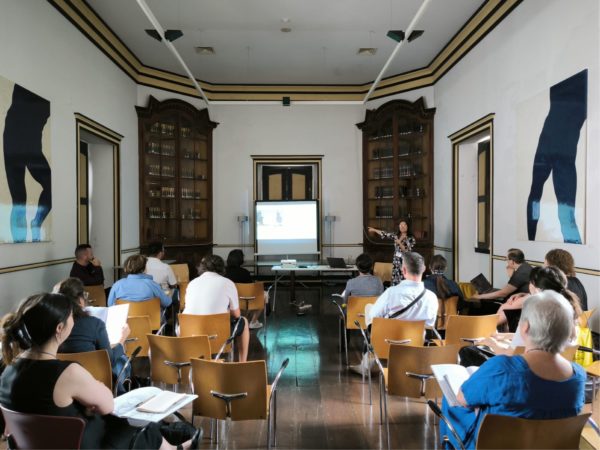ESCS UNESCO Chair participates in the 5th International Media Literacy Research Symposium

The 5th International Media Literacy Research Symposium was held at historic Biblioteca Pública e Arquivo Regional de Ponta Delgada in the archipelago of the Azores, on 27th and 28th June 2024. The presentation “Communication, Media Information Literacy and Citizenship: Strategies for a New Literacy UNESCO Chair”, from the Polytechnic Institute of Lisbon/ESCS, was made by Fernanda Bonacho, and took place in the morning of the second day, within the Strand of Media & Information Literacy. In the presentation Bonacho tried to unpack how the ESCS/IPL’s UNESCO Chair proposes to face the diverse challenges that communication and media literacies assume today as key literacies for empowering all citizens, without exception. The two days of the 5th International Media Literacy Research Symposium were full of many new topics and taking on a variety of themes and approaches about media literacy activism, critical media literacy, civic engagement, digital and algorithmic literacy, the rise of disinformation and how media literacy can be a solution to this global challenge. While there is some pessimism about the challenge presented by disinformation and polarization in the media, many people want to move beyond to think more broadly about what we need media education to do to empower young people and help them be creative. David Buckingham joined a keynote panel on “Where are we with Media Literacy Education? Where are we going?, with experts Sally Reynolds and Antonio Lopez concluding that kinship and empathy are needed alongside ethical communication skills. Meanwhile, Renee Hobbs shared the project GrandparentsOfMediaLiteracy.com by acknowledging the trailblazers whose ideas fertilized the practice of media literacy education.
The symposium welcomed people from around the world: Nigeria, Budapest, Hong Kong, USA, Belgium, Kosovo, of course Portugal, among others and the diversity of participants contributed to the milestones of work that is continually needed in the area of media literacy. The discussion was global and widespread, reaching into various subject areas, educational settings, and universities, non-profits, and more.
